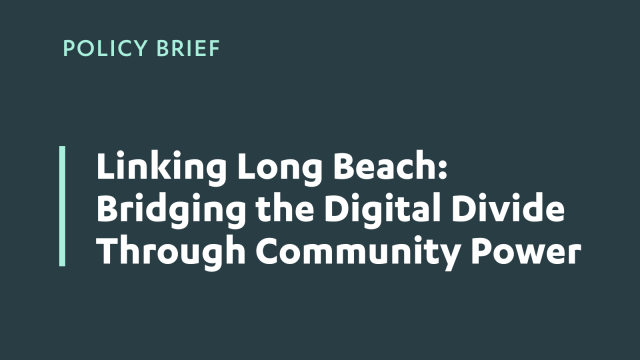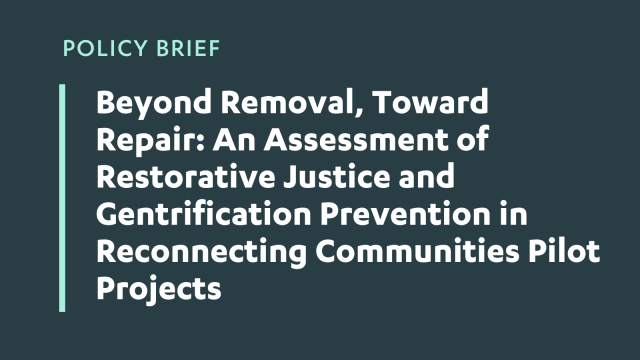Closing the Gap: A Community-Informed Approach to Expanding Internet Access in Long Beach
This report conducted in partnership with the City of Long Beach Office of Digital Equity and Inclusion (ODEI), aims to identify and address persistent gaps in internet access across the City of Long Beach. Despite significant progress many Long Beach residents, particularly in low-income communities, still face challenges to reliable, affordable internet access. These barriers contribute to broader inequities in education, employment, healthcare, and civic participation.
To inform policy recommendations, we employed a mixed-methods approach that included community surveys (digital and print), focus groups, expert interviews, and analysis of public park Wi-Fi login data. This data collection revealed eight key findings: (1) Internet is essential; (2) affordability is a key barrier; (3) one in four households are disconnected or at risk of losing connectivity; (4) bill discounts are effective; (5) public Wi-Fi has limited effectiveness; (6) ISP competition benefits consumers; (7) there is a need for more community trust and engagement; and (8) ongoing data collection is necessary.
Based on these findings, the report recommends three core actions: promoting ISP competition in multi-family housing through an Internet Choice Ordinance; supporting statewide affordability legislation like AB 355; and expanding community outreach to raise awareness of digital inclusion resources. Additional recommendations include improving public Wi-Fi infrastructure and continuing to gather connectivity data.
These findings and recommendations offer a model for other municipalities looking to implement community-informed, equity-focused broadband expansion strategies.



